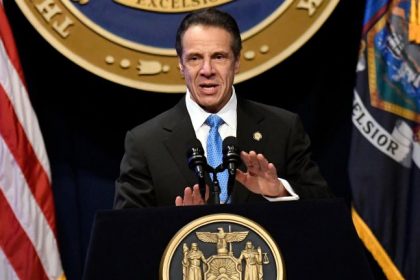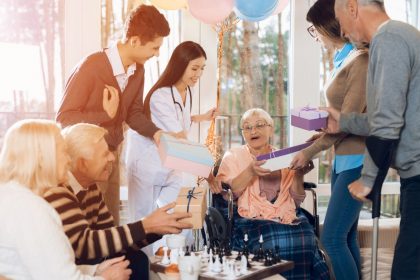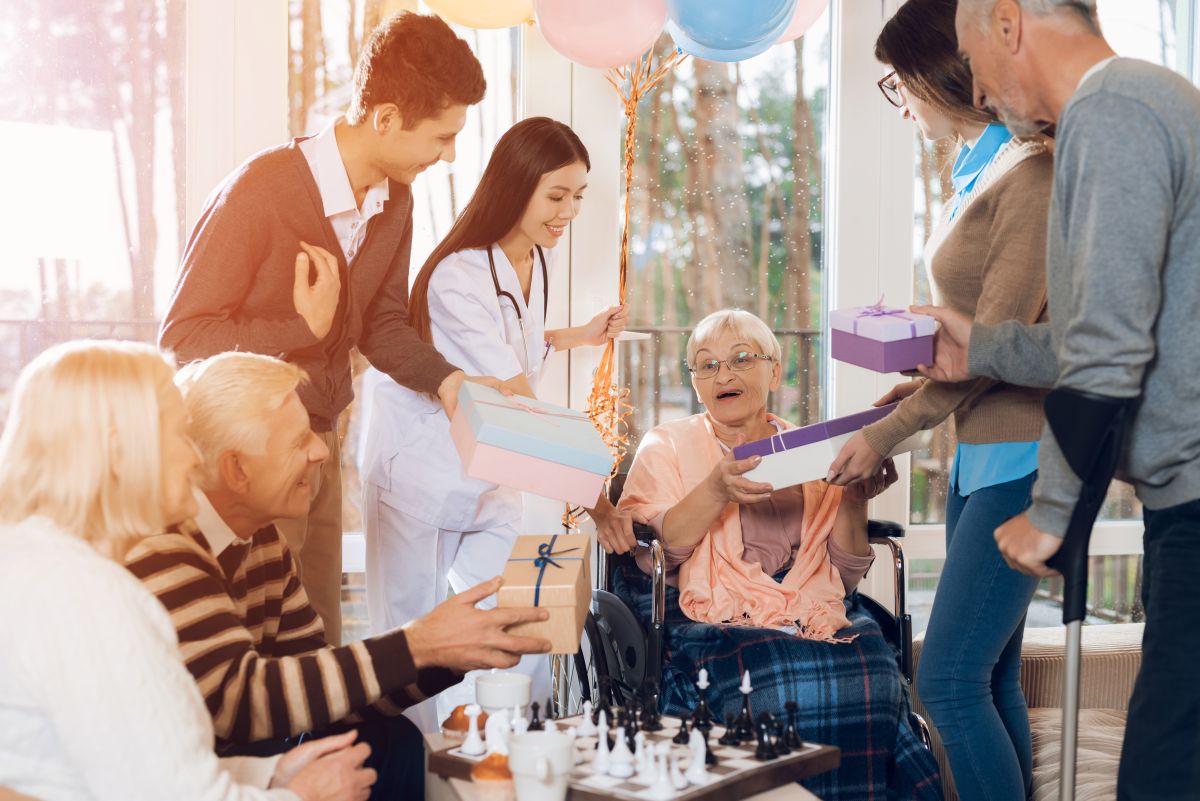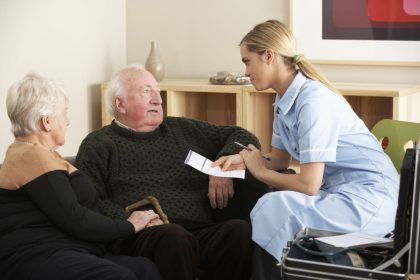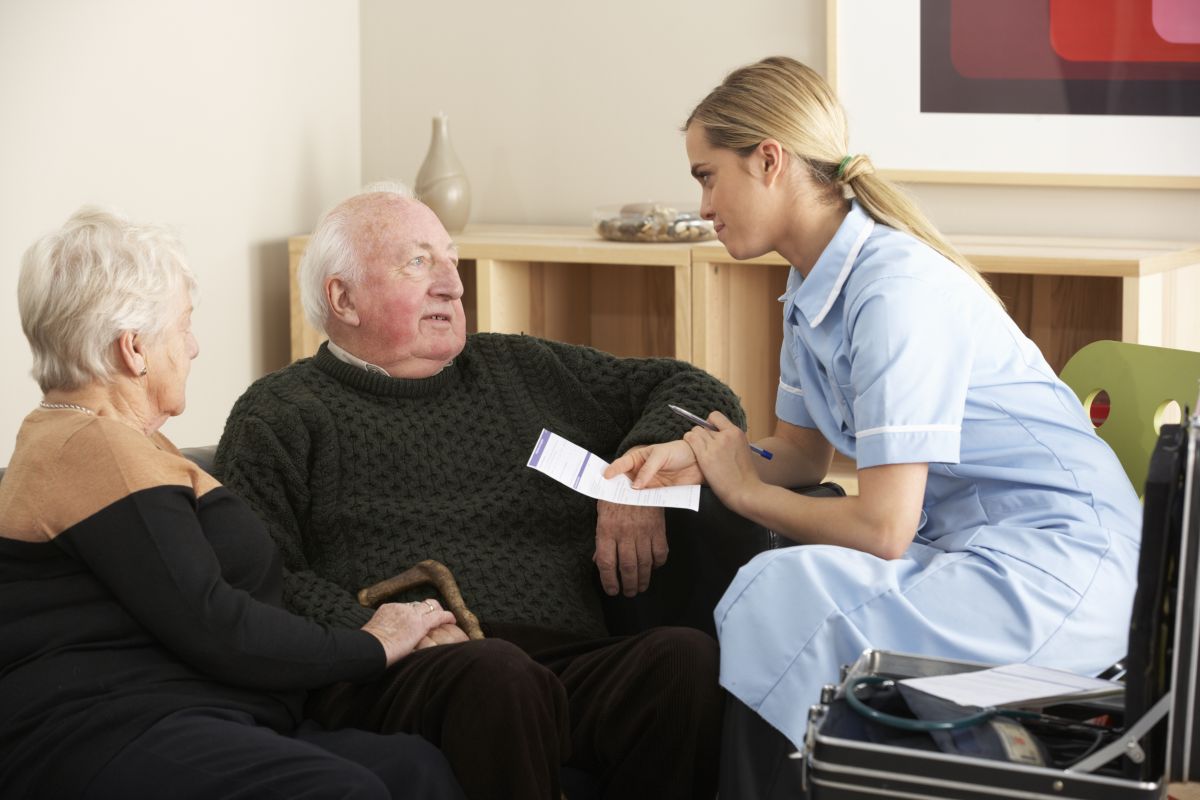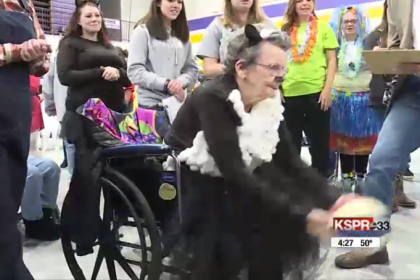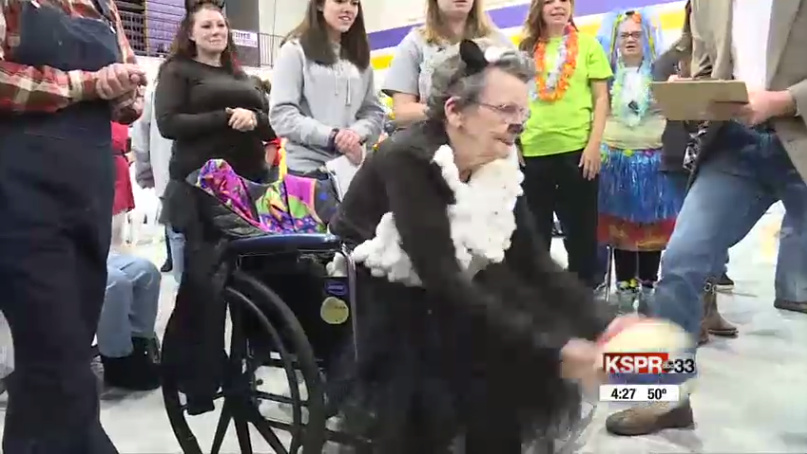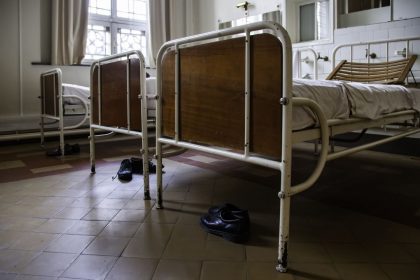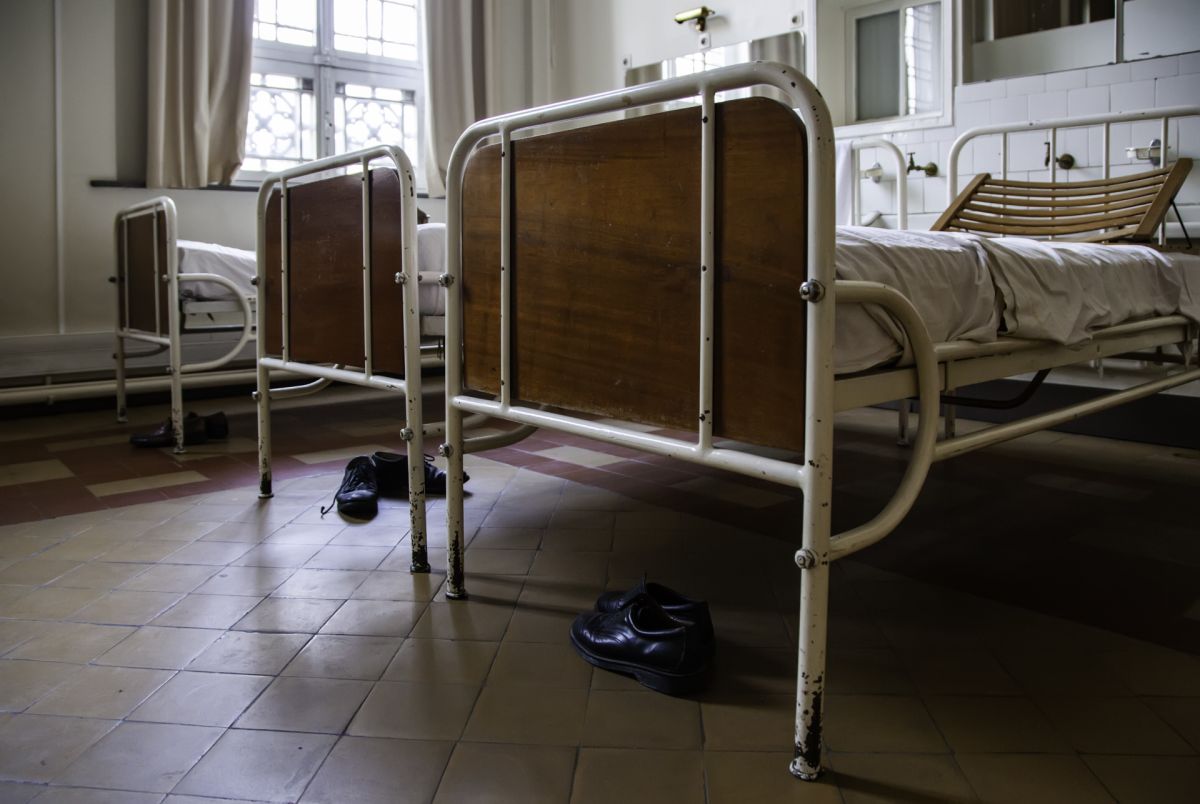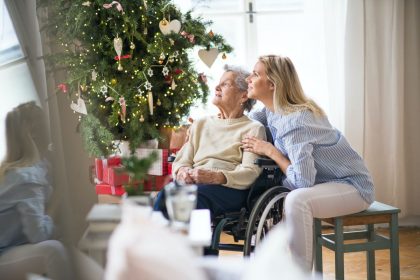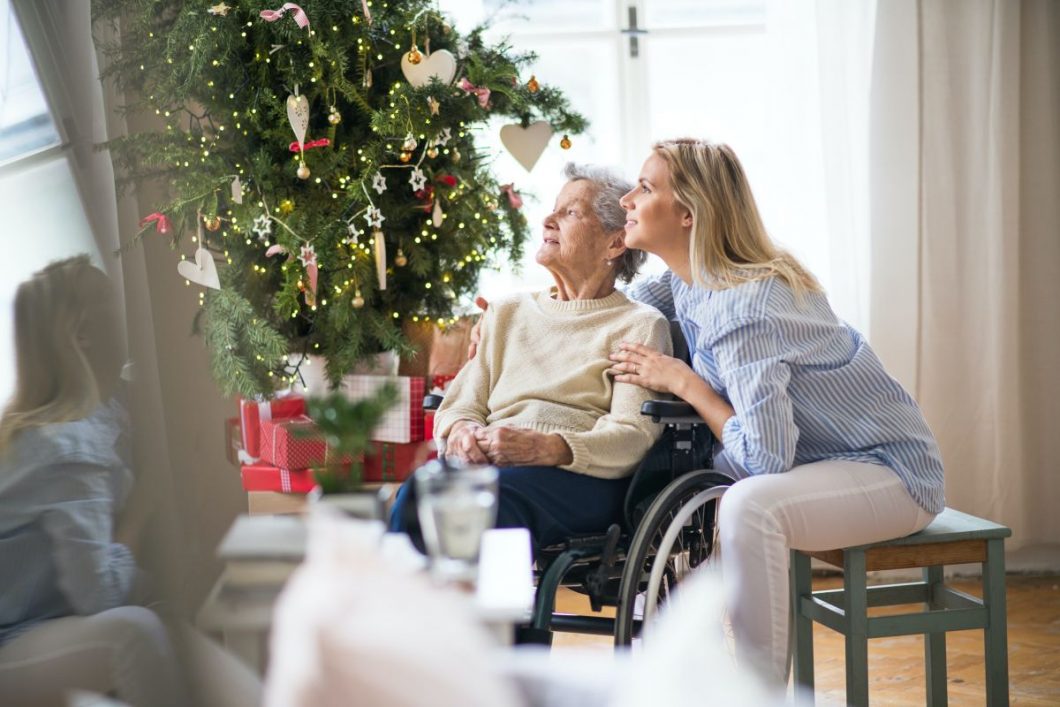February 26, 2020 – Sufficient staffing is vital to a nursing home resident’s quality of care and ability to live with dignity. Unfortunately, many nursing homes fail to comply with federal law requiring facilities to provide sufficient care staff and to have a registered nurse on duty eight hours a day, seven days a week. As demonstrated by the newest federal nursing home data (third quarter of 2019), too many facilities are failing to allocate funds to maintain sufficient staffing to meet every resident’s needs.
Today, LTCCC announces the publication of the latest user-friendly data on staffing for every U.S. nursing home (in compliance with mandatory reporting requirements). This information can help the public, news media, and policymakers identify and assess the extent to which nursing homes in their communities are providing sufficient staffing to meet basic clinical and quality of life needs. The data are for the most recent period reported by the federal Centers for Medicare & Medicaid Services (CMS).
Visitors to our website, www.nursinghome411.org, can download easy-to-use files for every state that include:
- The levels of care staff that a facility has for its residents;
- Staffing levels for important non-nursing staff, including administrators and activities staff; and
- The extent to which the facility relies on contract workers to provide resident care.
To facilitate ease of use, the individual state files are easily sortable. For example, a state file can be sorted to identify which facilities have the highest and lowest reported levels of registered nurse (RN) care.
Our report also includes data on staffing averages for all states (including Washington, DC), and accompanying maps illustrating state staffing averages and rankings.
- Based on average total staffing hours per resident day, the top 10 states are: Alaska, North Dakota, Florida, California, Hawaii, DC, Delaware, Oregon, Idaho, and Arizona.
- The bottom 10 states are: Missouri, Oklahoma, Texas, New Mexico, Illinois, Indiana, South Dakota, Nebraska, Kansas, and Rhode Island.
A few facts about the reported data:
- A landmark 2001 federal study indicated that 4.10 total care staff hours per resident day (HPRD) and 0.75 RN care staff HPRD are needed to ensure that residents receive necessary clinical care. However, the latest data indicate that US nursing homes provide an average of 3.37 HPRD and 0.42 RN HPRD.
- Two-thirds of facilities (66.3 percent) provide less than a half-hour of RN care staff HPRD while 7.6 percent of facilities provide close to zero (≤ 0.10 hours) RN care staff HPRD.
- Two-thirds of facilities (65.8 percent) provide close to zero (≤ 0.10 hours) social work staff HPRD and 30.0 percent of facilities provide close to zero (≤ 0.10 hours) activities staff HPRD.
* Note: Nursing home facilities are prone to significant fluctuation in staffing and often have very low staffing on specific days such as weekends and holidays. Though our report accounts for staffing fluctuations by averaging all observations, data on staffing for specific days can be found by searching for a nursing home in the CMS dataset, https://data.cms.gov/Special-Programs-Initiatives-Long-Term-Care-Facili/PBJ-Daily-Nurse-Staffing-CY-2019-Q3/rqet-pmzi.
Long Term Care Community Coalition www.nursinghome411.org One Penn Plaza, Suite 6252 New York, NY 10119 United StatesContact Dalli & Marino LLP
 Dalli & Marino, LLP has been providing top-tier representation, and we have recovered millions of dollars, for families in cases of nursing home and other skilled care/elder care facility neglect and results of understaffing, in Suffolk and Nassau Counties (Long Island), Manhattan, Brooklyn, the Bronx, Queens, Staten Island, and Westchester County, since 1996.
Please contact our team to discuss your case, or with any questions, at 1-888-465-8790 [Toll-Free], or by completing the CASE EVALUATION Form on our Contact Page. Read More
Dalli & Marino, LLP has been providing top-tier representation, and we have recovered millions of dollars, for families in cases of nursing home and other skilled care/elder care facility neglect and results of understaffing, in Suffolk and Nassau Counties (Long Island), Manhattan, Brooklyn, the Bronx, Queens, Staten Island, and Westchester County, since 1996.
Please contact our team to discuss your case, or with any questions, at 1-888-465-8790 [Toll-Free], or by completing the CASE EVALUATION Form on our Contact Page. Read More
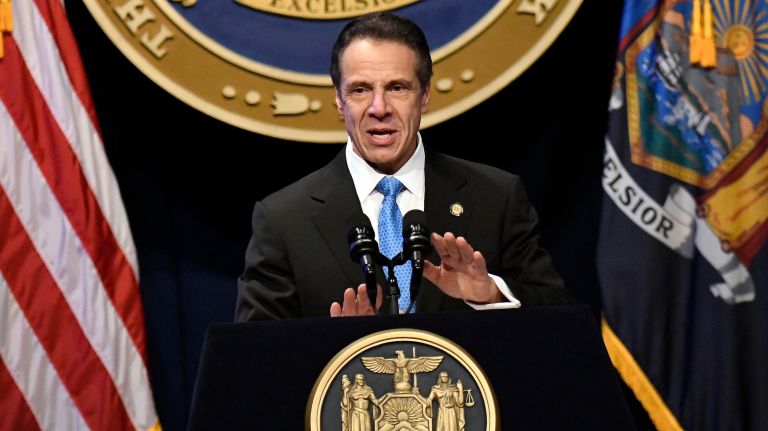
New York State may end the practice of “spousal refusal” for elderly couples, which many argue keeps one spouse out of poverty as Medicaid pays for the other’s nursing home care, according to a story by NEWSDAY’s Michael Gormley.
With spousal refusal, the “well” spouse can legally refuse to pay for a nursing home for the other, redirecting the bill to Medicaid. But Governor Cuomo has mandated a $2.5 billion cut to the state’s Medicaid budget and has asked that spousal refusal be considered as part of those decreases.
Eldercare advocates such as the New York City Bar Association and the elder law panel of the state Bar Association oppose eliminating spousal refusal. A panel study said that without spousal refusal, the funds remaining for everyday expenses for the other spouse “are completely unrealistic for living expenses throughout most of New York state today.”
John Dalli, a partner at the law firm Dalli & Marino, LLP agrees that ending spousal refusal would have a negative impact on families.
“Families already struggling with skyrocketing medical expenses would be further disadvantaged,” said Dalli. “Elderly couples could be forced to give up all their savings and assets to pay the nursing home bills for only one spouse.”
Read the Complete Story By Clicking on This Link
Copyright © 2020, Newsday.
Contact Nursing Home Abuse Attorneys Dalli & Marino
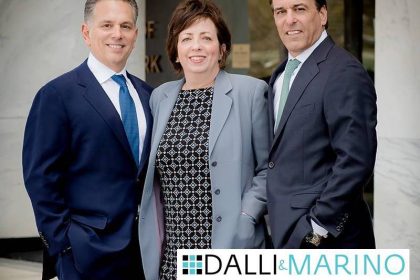 Since 1996, Dalli & Marino, LLP, has helped families recover millions of dollars in cases of neglect at nursing homes or other elder care facilities. Our team serves Suffolk and Nassau Counties (Long Island), Manhattan, Brooklyn, the Bronx, Queens, Staten Island and Westchester County.
Since 1996, Dalli & Marino, LLP, has helped families recover millions of dollars in cases of neglect at nursing homes or other elder care facilities. Our team serves Suffolk and Nassau Counties (Long Island), Manhattan, Brooklyn, the Bronx, Queens, Staten Island and Westchester County.
Please call our office today if you have questions about a loved one in a nursing home that may have experienced one of these issues at 1-877-862-2093 [Toll-Free] or complete the CASE EVALUATION FORM on our Contact Page.
Read MoreLTCCC Action Alert: Please speak out to increase funding of the NYS Long Term Care Ombudsman Program
The Long Term Care Ombudsman Program (LTCOP) offers a valuable, cost-effective service to seniors and their families in nursing homes, adult care facilities, and family type homes, by helping address their complaints and quality of life concerns. LTCOP has long been significantly underfunded, receiving only $1.19M for the entire program statewide. This lack of resources has resulted in the program being unable to provide adequate coverage of the long term care facilities in which some of our most vulnerable citizens reside.
Please take a moment to speak out in support of increasing funding to the NYS LTCOP by contacting your legislators today. Click here for the Action Alert, which is also available under the New York State Action Alerts in the Action Center of our website, www.nursinghome411.org.
Thank you for your consideration!
Long Term Care Community Coalition
www.nursinghome411.org
One Penn Plaza, Suite 6252
New York, NY 10119
United States
Contact Dalli & Marino LLP
 Dalli & Marino, LLP has been providing top-tier representation, and we have recovered millions of dollars, for families in cases of nursing home and other skilled care/elder care facility neglect and results of understaffing, in Suffolk and Nassau Counties (Long Island), Manhattan, Brooklyn, the Bronx, Queens, Staten Island, and Westchester County, since 1996.
Dalli & Marino, LLP has been providing top-tier representation, and we have recovered millions of dollars, for families in cases of nursing home and other skilled care/elder care facility neglect and results of understaffing, in Suffolk and Nassau Counties (Long Island), Manhattan, Brooklyn, the Bronx, Queens, Staten Island, and Westchester County, since 1996.
Please contact our team to discuss your case, or with any questions, at 1-888-465-8790 [Toll-Free], or by completing the CASE EVALUATION Form on our Contact Page.
Read MoreAn estimated 1.3 million residents live in nursing homes in the U.S., according to the Centers for Disease Control and Prevention. That number is only bound to grow as our elderly population rises. But when nearly 70% of the 15,600 nursing homes in the U.S. are owned by for-profit companies, the potential for elder abuse and neglect is high.
“Unfortunately, many of these facilities choose profits over people,” said John Dalli, a partner in the law firm Dalli & Marino, LLP. “One shortfall we see too often is a lack of essential staffing, which can lead to neglect and abuse resulting in serious injuries such as bedsores, falls, and medication errors.”
The United States Centers for Medicare and Medicaid Services offers an extensive, helpful checklist on questions to ask when you’re searching for a nursing home for a parent. In this first article, we will cover the “basics” as well as general safety and care at a facility.
Type of Facility
- Is the nursing home Medicare certified?
- Is it also Medicaid certified? (Medicare only covers care from nursing homes that have passed a state agency inspection.)
- Are the nursing home and current administrator licensed in your state?
- What specialized services are offered, like a special care unit for a resident with dementia or ventilator care?
- Is the nursing home located close enough for friends and family to visit?
- Are there resident policies I must follow? Will I get a written copy of these policies?
- Are there extra charges for other services, like a beauty shop?
- Will the nursing home tell me in writing about their services, charges, and fees before I move into the home? Facilities certified by Medicare or Medicaid must share this information in writing. Get a copy of the fee schedule to find out which services are included, and which cost extra.
- Do you have to sign an arbitration agreement?
“Beware of forced arbitration clauses which allow a facility to avoid a lawsuit for damages if a resident is injured or harmed under their care,” said Dalli.
Safety and Care In the Facility
- Have you checked the nursing home’s star ratings on Medicare.gov?
- Is the nursing home taking action to improve any quality or staffing issues noted on the site?
- Can residents still see their personal doctors? If so, does the facility help arrange transportation?
- Does the nursing home have an arrangement with a nearby hospital?
- Are care plan meetings held with residents and family members at times that are convenient and flexible whenever possible?
- Ask for the nursing home’s state or federal inspection report. Does it show quality of care problems or other citations? (Note: These reports can also be found on most state survey agency websites and Medicare.gov.)
- Has the nursing home corrected all citations on its last state inspection report?
Our next article in this series will look at comparing the quality of staffing at nursing homes.
Contact Nursing Home Abuse Attorneys Dalli & Marino
 Since 1996, Dalli & Marino, LLP, has helped families recover millions of dollars in cases of neglect at nursing homes or other elder care facilities. Our team serves Suffolk and Nassau Counties (Long Island), Manhattan, Brooklyn, the Bronx, Queens, Staten Island and Westchester County.
Since 1996, Dalli & Marino, LLP, has helped families recover millions of dollars in cases of neglect at nursing homes or other elder care facilities. Our team serves Suffolk and Nassau Counties (Long Island), Manhattan, Brooklyn, the Bronx, Queens, Staten Island and Westchester County.
Please call our office today if you have questions about a loved one in a nursing home that may have experienced one of these issues at 1-888-465-8790 [Toll-Free] or complete the CASE EVALUATION FORM on our Contact Page.
Read MoreThe family of an elderly woman was recently awarded $550,000 because her negligent care at a Nassau County skilled nursing facility caused a bedsore that ultimately led to fatal infections. The settlement was negotiated by the nursing home abuse attorneys at the law firm of Dalli & Marino, LLP.
LACK OF TURNING AND POSITIONING CAUSED BEDSORE TO WORSEN
The 86-year-old patient was admitted with a small break in her skin. During her brief stay, the patient was often left for long periods of time in her wheelchair without being moved, which created more pressure on her wound.
Her inadequate care caused the skin-break to develop into an infected Stage 4 wound, progressing to sepsis, which contributed to her death. She was also found to have had osteomyelitis, an infection of the bone. The case was settled by mediation prior to jury selection.
Understaffing at Nursing Homes Causes Needless Suffering
“Negligence caused an unnecessary tragedy for an entire family,” said John Dalli, a partner in the law firm Dalli & Marino. “The facility lacked the staff to prevent this fatal injury. If you have loved ones in a nursing home or hospital, it’s important to be vigilant for signs of bedsores.”
According to Johns Hopkins, bedsores can be prevented by “inspecting the skin for areas of redness (the first sign of skin breakdown) every day with particular attention to bony areas.” Also, changing the person’s position every two hours can help keep bedsores from forming. Nursing home residents at risk of developing bedsores can also be given special protective mattresses.
Wheelchair Patients Also At Risk For Bedsores
For an individual in a wheelchair, soft padding can help prevent bedsores, as can moving frequently. Johns Hopkins states that for a person “sitting upright and straight in a wheelchair, changing position every 15 minutes” is helpful. Good skin care and nutrition can also help with bedsores. These preventative care methods can also help prevent existing sores from getting worse.
“If you see these types of sores develop, seek medical attention immediately to avoid an unnecessary tragedy,” said Dalli.
Contact Nursing Home Abuse Attorneys Dalli & Marino
Bedsores are the #1 sign of neglect at a nursing home. If your loved one has developed this type of injury at a skilled nursing facility in New York, contact the law firm of Dalli & Marino for a free case evaluation. Our attorneys have extensive experience fighting on behalf of those who have been subject to abuses while in residential care facilities. Our team serves Suffolk and Nassau Counties (Long Island), Manhattan, Brooklyn, the Bronx, Queens, Staten Island and Westchester County.
You can reach us by phone at 1-888-945-6591 [Toll-Free] or by completing the CASE EVALUATION FORM on our Contact Page.
Read MoreJanuary 21, 2020 – For far too many nursing home residents, adequate care and treatment with dignity are out of reach. Though nursing home standards are strong, the promise of those standards is frequently broken. Last year, a resident’s daughter testified at a U.S. Senate hearing, “[m]y final memories of my mother’s life now include watching her bang uncontrollably on her private parts for days after the rape, with tears rolling down her eyes, apparently trying to tell me what had been done to her but unable to speak due to her disease.” A federal assessment found that, “[i}n light of the increased number and severity of abuse deficiencies, it is imperative that CMS have strong nursing home oversight in place to protect residents from abuse.”
Sadly, rather than answering these calls to protect elderly residents, the Centers for Medicare & Medicaid Services (CMS), the federal agency responsible for protecting residents, has instead called for reducing standards, cutting penalties for abuse, and decreasing oversight. This response led us to ask the question: How bad does nursing home care have to get before our state and federal leaders take action? We know that, too often, the resident experience falls far short of both the promise that nursing homes make to residents when they enter a facility and the federal requirements for nursing home care. Ultimately, we questioned how the experiences of residents even stack up against the requirements and expectations for the care and treatment of animals.
Today, we are publishing the results of this assessment in a new report, Animal Care Standards vs. Nursing Home Resident Experiences: An Appraisal of the Extent to which Nursing Home Conditions Fail to Meet the Standards of Care for Animals in Zoos and Other Settings. The point of this work is not to trivialize the experiences of either nursing home residents or animals but, rather, to illustrate how systemic failures to hold nursing homes accountable for abuse and neglect too often subject residents to conditions that not only fall below the federal nursing home standards of care, but also below accepted standards for the humane treatment of animals.
Example from report:
- Animal Care Standard: An elephant’s skin must be thoroughly inspected on a daily basis and cared for as needed through bathing, removal of dead skin, and treatment of dry skin or other skin problems. The elephant’s skin should be supple and free of dead skin buildup, and not cracked or dry.
- Nursing Home Standard: All residents must receive care to ensure that they do not develop pressure ulcers unless the individual’s clinical condition demonstrates that they were unavoidable. A resident with pressure ulcers must receive care, consistent with professional standards, to promote healing, prevent infection, and prevent new ulcers from developing.
- Actual Nursing Home Resident Experience: Several residents at a Tennessee nursing home were harmed after the facility failed to prevent and treat their pressure ulcers. One resident, who had not received body audits for 35 days, developed a Stage 4 pressure ulcer on their left buttock.
- Nursing Home Stats: Over 93,000 U.S. nursing home residents currently have pressure ulcers.
Long Term Care Community Coalition
www.nursinghome411.org
One Penn Plaza, Suite 6252
New York, NY 10119
United States
Contact Dalli & Marino LLP
 Dalli & Marino, LLP has been providing top-tier representation, and we have recovered millions of dollars, for families in cases of nursing home and other skilled care/elder care facility neglect and results of understaffing, in Suffolk and Nassau Counties (Long Island), Manhattan, Brooklyn, the Bronx, Queens, Staten Island, and Westchester County, since 1996.
Dalli & Marino, LLP has been providing top-tier representation, and we have recovered millions of dollars, for families in cases of nursing home and other skilled care/elder care facility neglect and results of understaffing, in Suffolk and Nassau Counties (Long Island), Manhattan, Brooklyn, the Bronx, Queens, Staten Island, and Westchester County, since 1996.
Please contact our team to discuss your case, or with any questions, at 1-888-465-8790 [Toll-Free], or by completing the CASE EVALUATION Form on our Contact Page.
Read MoreIn our prior post, we looked at the process around filing a lawsuit if your loved one suffers from bedsores at a skilled nursing facility. According to the federal government, over 2.5 million people develop bedsores each year often occurring at nursing homes where understaffing causes negligent care of its residents.
“The presence of bedsores is a leading indicator of elder abuse, which is sufficient reason to file a lawsuit against the responsible caretaker,” said John Dalli, a partner in the law firm Dalli & Marino, LLP. “An experienced nursing home abuse attorney can help determine if you have a case and how best to proceed.”
We reviewed how that process starts: A complaint is filed; discovery is conducted, and settlement negotiations take place. If no agreement is reached, the case then goes to trial. Of course just because a case is filed, there is no guarantee there will be a recovery.
What Can I Expect at a Bedsore Lawsuit Trial?
Most trials follow the same general format. The plaintiffs go first and make their case to the jury by putting on evidence and questioning witnesses. The plaintiff will try to show by a preponderance of the evidence that the defendant should be held liable for the plaintiff’s injuries.
Once the plaintiff has completed his or her presentation of the evidence, it is the defendant’s turn. The defendants will then make their case for why they are not responsible for the plaintiff’s injuries. After both sides rest, each party has the opportunity to make a closing argument.
The case then goes to the jury who deliberates. Once the jury has reached a verdict, it is read to the court, and the plaintiff will learn whether or not the defendant will be held liable and what damages the jury has decided are appropriate.
What Types of Damages Can Be Awarded for Bedsore Injuries?
What your loved one can be compensated for is an important factor in deciding whether or not to file a lawsuit against a negligent caretaker. Can they recover damages for the expensive medical bills that they have been racking up? Can they be compensated for the considerable pain and suffering they have endured? Can you make the person or entity pay damages because their behavior was egregious?
The answers depend on the facts and circumstances of your specific case. Damages can be broken down into two categories: compensatory and punitive:
Compensatory damages compensate the plaintiffs for the harm they suffered and the losses incurred as a result of the defendant’s negligence. This would include medical bills, lost wages, and pain and suffering.
Punitive damages, by contrast, are not meant to compensate the plaintiff. Instead, they are used to punish the defendant for past reprehensible behavior and to deter any similar conduct in the future. Punitive damages are only available in certain instances when a defendant’s behavior was particularly willful or egregious.
Contact Nursing Home Abuse Attorneys
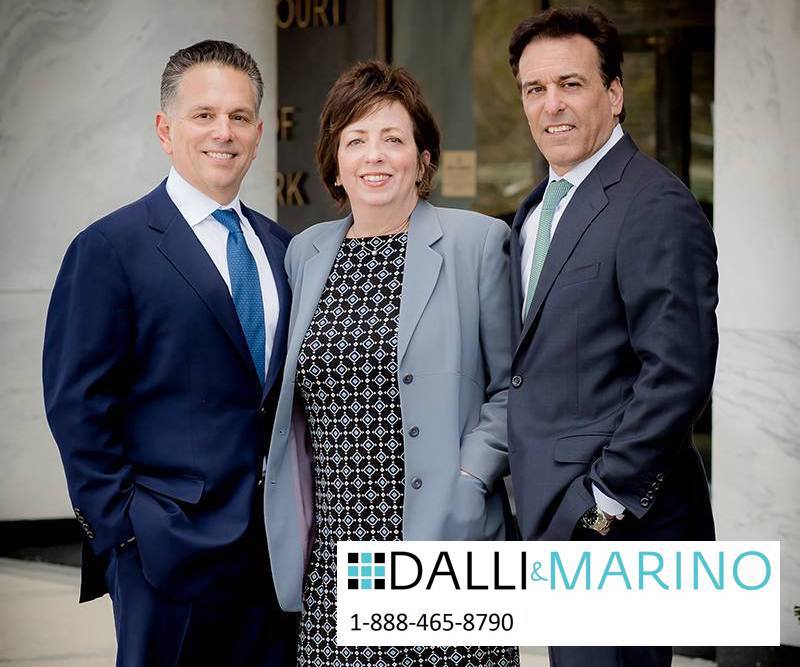 Bedsores are the #1 sign of neglect at a nursing home. If your loved one has developed this type of injury at a skilled nursing facility in New York, call the law firm of Dalli & Marino for a free case evaluation. Our attorneys have extensive experience fighting on behalf of those who have been subject to abuses while in residential care facilities. Our team serves Suffolk and Nassau Counties (Long Island), Manhattan, Brooklyn, the Bronx, Queens, Staten Island and Westchester County.
Bedsores are the #1 sign of neglect at a nursing home. If your loved one has developed this type of injury at a skilled nursing facility in New York, call the law firm of Dalli & Marino for a free case evaluation. Our attorneys have extensive experience fighting on behalf of those who have been subject to abuses while in residential care facilities. Our team serves Suffolk and Nassau Counties (Long Island), Manhattan, Brooklyn, the Bronx, Queens, Staten Island and Westchester County.
You can contact us by phone at 1-888-465-8790 [Toll-Free] or complete the CASE EVALUATION FORM on our Contact Page.
Read MoreWhy The Holidays Are A Prime Time For Elder Abuse – The Conversation
The holidays provide us with an opportunity to be more alert to signs of elder abuse and neglect, according to Kathleen Wilber, professor of gerontology at the University of Southern California writing for The Conversation.
She reports that the World Health Organization says one in six older adults worldwide is a victim of elder abuse, a statistic that will only rise as the population continues to age.
Be Alert For Signs of Neglect and Abuse When Visiting Loved Ones In Nursing Homes
Wilber suggests that the holidays are a wonderful time to check on the elderly and their overworked caretakers, being mindful for signs of financial, emotional or even physical abuse.
John Dalli, a partner in the law firm Dalli & Marino, LLP agrees. “Nursing homes, for example, are often short-staffed during the holidays. So it’s even more important to check on your loved ones now to make sure they are receiving the best care possible.”
He adds, “When visiting, be alert for signs of neglect or abuse such as abrasions or bruising, or any changes in their emotional or mental states. Just as important, ask them how they are doing, if they have complaints or need anything.”
Read the complete article by clicking on this link.
Copyright © 2010-2019. The Conversation US, Inc. All Rights Reserved.
Contact Nursing Home Abuse Attorneys Dalli & Marino
 If you suspect your loved one has experienced abuse or negligent care at a nursing home facility in New York, call the law firm of Dalli & Marino for a free case evaluation. Our attorneys have extensive experience fighting on behalf of those who have been subject to abuses while in residential care facilities.
If you suspect your loved one has experienced abuse or negligent care at a nursing home facility in New York, call the law firm of Dalli & Marino for a free case evaluation. Our attorneys have extensive experience fighting on behalf of those who have been subject to abuses while in residential care facilities.
You can contact us by phone at 1-888-465-8790 [Toll-Free] or complete the CASE EVALUATION FORM on our Contact Page.
Read More

